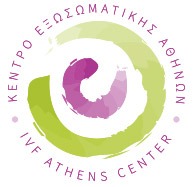
Egg Freezing
Egg freezing is an innovative and safe technique for a woman to maintain fertility.
It offers the woman not only the autonomy to do family planning in a future time with a fertility potential she would have at a younger age, but also a method of safeguarding fertility when medical reasons (e.g. chemotherapy, surgical procedure) render it a necessity.
The process that is followed is that of a “traditional” IVF, with a protocol adjusted to the woman’s medical history and hormonal profile, which means
- ovarian stimulation and hormonal measurements,
- ultrasound monitoring of the egg follicle size
- a simple invasive technique (eggs collection), suctioning of the ova and their subsequent freezing.
The age factor in any process of Medically Assisted Reproduction, from a medical perspective, is of crucial importance. The more advanced a woman’s age is, the fewer the supplies of ova in her ovaries are and the higher the production of poor quality ova. Although it is not common to generalize that the above processes happen at the same rate or gravity in every woman, it is widely accepted that the most suitable age for Cryopreservation is until the age of 35.
Any woman who wishes to safeguard her fertility should pay special attention to the following:
Α. An individualized/personalized minimal stimulation protocol.
Β. A Registered Centre of Reproductive Medicine that will guarantee the preservation of the “valuable” ova.
C. A suitable Supply and Technological Infrastructure as well as staff experience in the embryological laboratory.
D. Finally, a trustworthy and efficient relationship of the woman with the doctor and the staff of the Centre will prove valuable so as to facilitate the process smoothly and without anxiety.

Frequently Asked Questions about
Egg harvesting
How is egg harvesting realized?
Egg harvesting is the stage of collecting eggs from the ovaries. During this process, the doctor uses a specialized, fine needle to suction the content of the egg follicles, which are the ova. The process is continuously monitored with the help of a transvaginal ultrasound so that there is constant control. After that, the ova that have been suctioned are handed to the embryological laboratory to be either fertilized or frozen.
Is egg harvesting a painful process?
No, the process is painless and is realized under the influence of mild anesthesia (conscious/mild sedation).
SectionWhat is the required recuperation period after egg harvesting?
After the egg harvesting process, the woman will remain in bed for about one hour. After she gets up, the consulting doctor will give her instructions regarding her medication (antibiotics) as well as advice on the dietary program that is recommended for her to have in the following days.
When is egg harvesting considered successful?
The process of egg harvesting is successful when a sufficient number of ova are produced, which are considered “mature” so that the fertilization process can follow in the Embryological Laboratory.
We are here to answer any questions and discuss with you.




